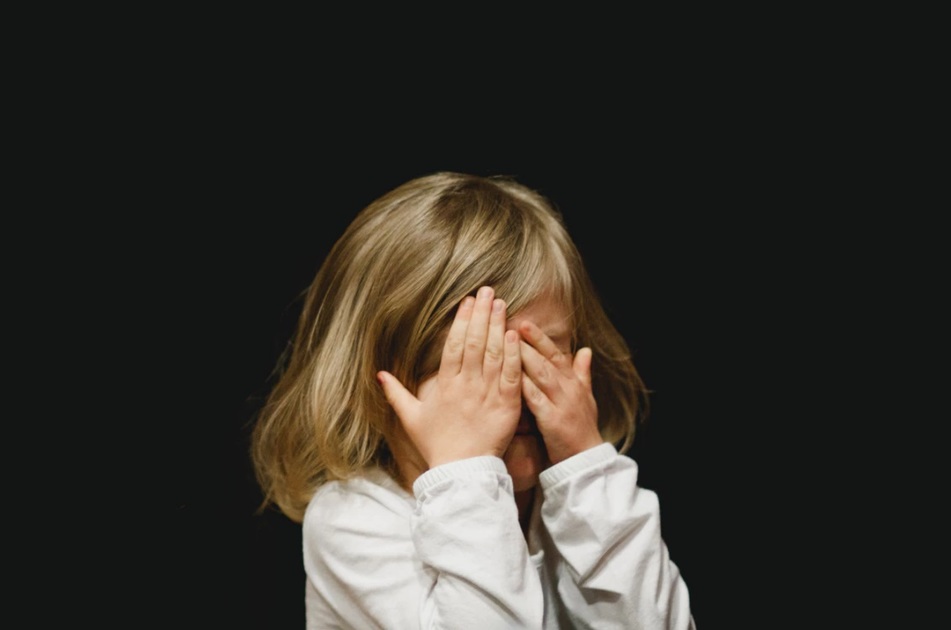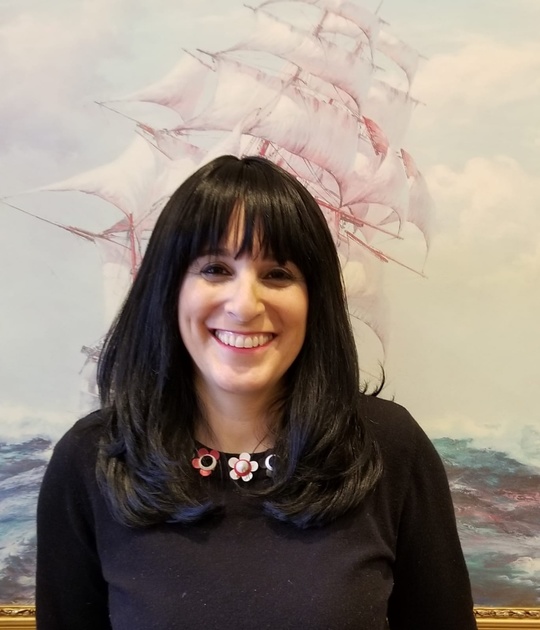
When I reminded my married son about the incident, he said, “I was six, Ma!”
“But you apologized,” I said.
“I did,” he said, laughing. “We became best friends.”
My daughter-in-law looked at me quizzically.
I explained. A mother in my son's class called to tell me that he and a bunch of other boys were teasing another boy about his weight. My son allegedly called him fatso. Of course I did not believe it. My son? No way. But I was a responsible sort of mother, and when my son came home that day from first grade, I asked him about it. His face gave him away. I know it sounds ridiculous, because after all, what did he really do? He was a little kid. But I could not control the tears that sprang up in my eyes when I heard of this awful behavior. I think he was shocked at my reaction. (I don't think he has ever seen me cry since.)
“Mommy,” he said earnestly, “I promise I am going to say I'm sorry to him.”
The next day, without me saying anything more, I saw him packing up an extra nosh in his bag. “For Sruli,” he said. And when he came home, mission accomplished, he described how he and Sruli had played ball together during recess.
“Was he upset at you?” I asked cautiously.
And characteristically of my practical, then six-year-old son, who really does not have a mean bone in his body, he said what would seem obvious to anybody, “He knows he's fat.”
And according the research on apologies, this incident of hurt, apology and repair is a perfect example of the perfect apology.
I would imagine, then, if my six-year-old son could do it, any of us could do it, too. No?
Let's find out.
Why do we even need to say, “I'm Sorry?” What's the hype about the apology? Why do we drive our kids, and ourselves, crazy about apologizing?
“Say I'm sorry to your little brother,”
“Say I'm sorry to your friend/rebbi/teacher/the grocer.”
“Say you are sorry for coming home late/hitting your sister/losing the ring Bubby just bought for you.”
Why?
Don't you think she is already feeling bad about the ring she lost? About facing Bubby without it? Must you rub salt on her wounds by making her admit to it, too? And the research says, “Yes.” You gotta say I'm sorry. And you can't even just apologize any old way. There's a way to do it and if you don't do it the right way, then not apologizing can be even better than doing it wrong.
Pressure, pressure. That's what you are feeling right now reading this? Hey, like it's bad enough I gotta apologize and now you're gonna make me crazy to do it your way? Yes. Stick with me and I will tell you why. And how.
Why apologize?
An apology is the social construct of our times, the important ritual we have created that shows respect and empathy for the person we have wronged. It is how we acknowledge our wrongdoing, which if we fail to do, will negatively impact the relationship with that other person. Even more, the apology is like a brake that stops anger and prevents further escalation of the negativity.
In one research study observing the role of apology after a conflict, the results showed high levels of forgiveness towards the wrongdoer were maintained for several weeks after the incident; while simultaneously, the level of anger towards the wrongdoer significantly decreased.
As if we needed a study to tell us what we know already. Like, when I apologize to my spouse or child then they will be generous in their forgiveness and far less angry than before I apologized. The researchers could have saved their time and money and just asked me.
But although we know this is true, it's interesting to note why it is so. The study observes that the reason for these positive outcomes is twofold. First of all, if a wrongdoer apologizes, she sends a message that the relationship is important to her. And that translates into the relationship being important to the offended party. And there ain't no relationship with only one person; so automatically the wrongdoer is valued in the relationship again. That apology makes the harmed individual feel safer in the relationship, more confident and stable. The second reason for this positive outcome is that an apology signals that the wrongdoer is repentant, desires an end to the conflict, and will not repeat those errors. Amazing, no? This research study is not researching what actually occurs in the relationship following an apology (if the relationship is truly more stable or valued); but rather, the impact of a properly given apology on the mindset of a person.
What's the right way to give an apology?
Believe it or not, the actual words, “I'm sorry,” are crucial. It indicates regret about what happened, an element that enables the relationship to recover and move forward.
Offering some sort of compensation is a second ingredient. It's a concrete way of showing remorse that takes it beyond the, “I'm sorry.” It's like the adage, “Put your money where your mouth is.”
Taking full responsibility for the wrongdoing is a third part. None of that, “I'm really sorry I yelled at you BUT you really got me angry when you left your briefcase on the floor.” You stick in a but and your apology is ruined.
Notice my little son's perfect apology. He was sorry. He gave Sruli nosh. (Although, as you will seen soon, he may have messed up an eensy, peensy bit by saying, “He knows he's fat,” as if inserting a but, insinuating his friend deserved it, or had it coming by being fat, or by knowing he's fat. Although that is not what my son was saying. He simply meant that his friend was not upset at him because it was a matter-of-fact that he's fat. And if you would know that kid, it was probably true.)
Now, speaking of ruined apologies, do you want to know how you can really mess up an apology?
It's that little word but in an apology. The but that tells you that although he did something wrong to you, somehow he is not to blame. Or that somehow you are to blame instead. Something like this, “I'm sorry I ruined your outfit I borrowed for the wedding, but I tried my best to watch it all evening,” or “but you didn't tell me it was silk.” Or, sliding away from responsibility by slightly altering the subject, as in, “but I didn't know that you still wanted the dress back.”
Another way to mess up an apology is to shift the issue onto the other person by making it their fault they are so sensitive, timely, or organized. Something like, “I'm sorry that you got offended/are so sensitive when I made that joke in front of everyone.” It's saying, “I'm sorry that you over reacted in the way you did to my perfectly reasonable behavior,” instead of focusing on your own wrong behavior.
Deflecting responsibility for wrong behavior can also look like this: “Fine. I apologize for making that comment in front of your mother, but you should apologize for dragging me to your mother to begin with.” That may be a valid complaint, but during the precise time someone is apologizing, they cannot bring up the other person's crimes. Those crimes must be saved for a different conversation.
The narcissistic apology is probably worst of all. You know which kind I mean. Something like, “I am the worst wife/daughter/friend in the world! I can never forgive myself!” Complete with the hand wringing, gut wrenching tears, and endless repetition. Overkill. It's nice to show remorse, but once the apology becomes about you, it is worthless. As well as guilt- and anxiety-producing in the person to whom you are supposedly apologizing.
In short, don't shift responsibility as in, “I'm sorry you feel hurt.” Don't make excuses for your bad behavior, as in, “I know I hurt your feelings but.. Don't use forgiveness as a weapon as in, “I said I was sorry and if you keep bringing it up then I can't apologize again.”
Here are some more things you need to know if you are on either end of an apology.
If an apology feels wrong to you, or insincere, or inadequate, trust your gut that the wrongdoer has engaged in some of these slimy apology-busting behaviors.
Don't feel you have to apologize if you have not done anything wrong. But! (don't you hate these sneaky buts?) if you know someone thinks you did something wrong, you may want to give a little thought to why. You may be (un)pleasantly surprised to find yourself changing your mind about your innocence (or guilt) in the matter. Hmm. May an apology be in order after all?
Think about what you want when you are considering a request for an apology from someone.
I remember in my beginning days as a therapist and had the luxury not only of supervision on my cases, but supervision on my own life! I remember feeling very wronged by a specific person in my life, not necessarily work related (or family related, so that narrows things down a bit!). Even though it was outside the scope of supervision, I felt close enough to my supervisor to share this with her and ask her opinion of I should confront the person.
“What would be the reason of the confrontation?” my supervisor wisely asked.
“I want an apology,” I said, after thinking over her question.
“Don't ask for something you may not get and that can hurt you again,” she said.
This piece of sage advice has not only helped me in my personal life, but as a therapist, I often use her line with my clients when they talk about people in their lives who have wronged them and from whom they wish they can extract an apology.
I once heard a great line about apologies. “So many believe they're giving an apology when they are actually giving an explanation.”
An apology is power. Power to the person who receives it and can move forward, past the hurt, with that validation. And even more, power to the person who gives it because it can do so much good, so much repair, so much relationship building.
So power up and apologize. It will empower you.
NOTE: THIS WAS ORIGINALLY PUBLISHED BY BINAH MAGAZINE, A FEATURE ARTICLE
Look me up on LINKEDIN https://www.linkedin.com/in/mindy-blumenfeld-a8067583
Check out my book THERAPY SHMERAPY, available in bookstores and through Amazon
Browse through my previously published articles on my former blog Therapy Thinks and Thoughts at frumtherapist.com/profile/MindyBlumenfeldLCSW
Read current articles in my bi-weekly column THERAPY: A SNEAK PEEK INSIDE in Binah Magazine, available on newsstands every Monday.
 Previous
Previous

